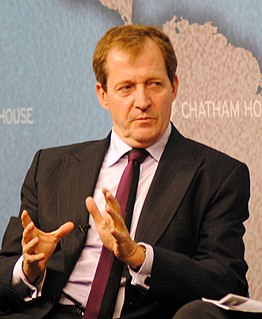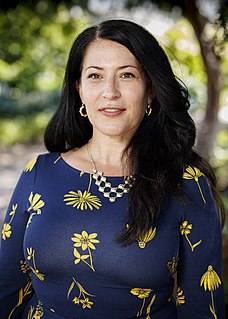A Quote by Gore Vidal
Writing when you are already very old means you have lived through the endings of so many things, you are more aware of the shape life takes. You begin to know Death, you've been close to it. But youth can barely imagine the end of this journey.
Related Quotes
Love is the very essence of life. It is the pot of gold at the end of the rainbow. Yet it is more than the end of the rainbow. Love is the security for which children weep, the yearning of youth, the adhesive that binds marriage, and the lubricant that prevents devastating friction in the home; it is the peace of old age, the sunlight of hope shinning through death.
So here is one of my theories on happiness: we cannot know if we have lived a truly happy life until the very end. This view of life and death was reinforced by my close witnessing of the buildup to the death of Philip Gould. Philip was without doubt my closest friend in politics. When he died, I felt like I had lost a limb.
Life is an experimental journey undertaken involuntarily. It is a journey of the spirit through the material world and, since it is the spirit that travels, it is the spirit that is experienced. That is why there exist contemplative souls who have lived more intensely, more widely, more tumultuously than others who have lived their lives purely externally. The end result is what matters. What one felt was what one experienced. One retires to bed as wearily from having dreamed as from having done hard physical labor. One never lives so intensely as when one has been thinking hard.
The great renunciation of old age as it prepared for death, wraps itself up in its chrysalis, which may be observed at the end of lives that are at all prolonged, even in old lovers who have lived for one another, in old friends bound by the closest ties of mutual sympathy, who, after a certain year, cease to make the necessary journey or even to cross the street to see one another, cease to correspond, and know that they will communicate no more in this world.
Whatever we say and mean by life is just a journey toward death. If you can understand that your whole life is just a journey and nothing else, then you are less interested in life and more interested in death. And once someone becomes more interested in death, he can go deep into the very depths of life; otherwise, he is just going to remain on the surface.
I mean, it's hard to talk about death without realizing that's our end too, right? I am constantly aware of death. It's not that I want to be, but it's a fascination of the mind and it plays a role in why I want to live my life a certain way. The more I am aware of my mortality the better person I am and the better I am at choosing a life that is aware of its beauty.
And the greatest calamity that has happened to the human mind is that he is against death. Being against death means you will miss the greatest mystery. And being against death also means that you will miss life itself - because they are deeply involved into each other; they are not two. Life is growing, death is the flowering of it. The journey and the goal are not separate; the journey ends in the goal.
I confessed recently to an old friend, "I realized I was looking at you, in your visit, through old glasses. Speaking old words. Telling old stories. I realize that in my life I've made so many physical changes and I need to give my spirit time to catch up." Time for my spirit to look at my friend through the new glasses of current life experiences. Old friends are precious. They become even more treasured when they are wrapped in the currentness of life experiences and not relegated to the past in which they once lived.
The dignity to be sought in death is the appreciation by others of what one has been in life,... that proceeds from a life well lived and from the acceptance of one's own death as a necessary process of nature.... It is also the recognition that the real event taking place at the end of our life is our death, not the attempts to prevent it.
Death is not the end, but the beginning of a new life. Yes, it is an end of something that is already dead. It is also a crescendo of what we call life, although very few know what life is. They live, but they live in such ignorance that they never encounter their own life. And it is impossible for these people to know their own death, because death is the ultimate experience of this life, and the beginning experience of another. Death is the door between two lives; one is left behind, one is waiting ahead.
I'm more interested in talking about what I do. And I don't think people are interested in my personal life. I've never had a Hollywood life. I've always been a worker. But it's true: If you know something about a person outside of the movie that is really repulsive to you, it's hard to shake. So I prefer to do my speaking through the work. I don't want people to know anything about me, because that's not important. I'm more interested in the me that takes shape through these characters. The other stuff is personal and too easy to trivialize out of context.




































